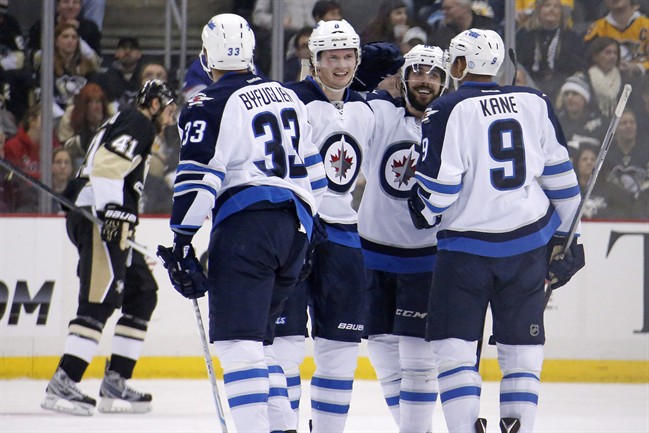CJOB’s Kelly Moore takes us through the arbitration process when players and NHL teams don’t have a deal by hearing deadline.

As a rule, NHL teams do not like to engage in the arbitration hearing process with their players, because sometimes there are things said that can “fracture” the relationship between the employee and employer.
But with that as the back drop, the Winnipeg Jets and restricted free agent defenceman Jacob Trouba did not have a deal negotiated prior to the scheduled 8 a.m. CT start of a hearing in Toronto this morning.
We spoke to an agent who has been through multiple arbitration hearings, including several in recent years, for a “Coles Notes” version of how the process works.
The agent, who asked not to be identified because they have several current arbitration hearings pending, says the process isn’t quite as nasty as it once was several decades ago. But critical comments, or comparables to other players, can still be made by the team that can leave a bad taste in the player’s mouth.

Get breaking National news
The usual schedule of events during a hearing include separate, direct presentations by each side. Those presentations are followed by a rebuttal. Each side is allotted 90 minutes, and there are also breaks scheduled in between.
It is during these breaks, or even before the hearing starts, that contracts are negotiated. Or at least the groundwork is laid for an eventual agreement.
If the process continues beyond the hearing, then the arbitrator has up to 48 hours to reach a final decision on what they have heard, along with the information provided. Most arbitrators will make use of the entire 48 hours at their disposal, but occasionally they might wrap up an hour earlier or so.
During this 48-hour window, further negotiations can take place between the team and player to reach an agreement. Some are not completed until the 46th or 47th hour.
Our source said there was one instance where the negotiated contract was being sent out to the necessary parties at the same time the arbitrator was sending his decision to the League, NHLPA, team, and player.
If there is no contract negotiated prior to the arbitrator’s decision, than it is up to the team to accept the terms, or reject the contract which results in the player becoming an unrestricted free agent.
And we should note, teams can only walk away from awards of $4.22 million or more.
The Jets avoided arbitration with centre Adam Lowry on Thursday by reaching an agreement on a three-year deal worth $8.75 million, and a salary cap hit of $2.9 million.
Arbitration hearings are still scheduled for forward Brandon Tanev on July 25 and for forward Marko Dano on July 30.
WATCH: Jacob Trouba says he doesn’t regret trade request:









Comments